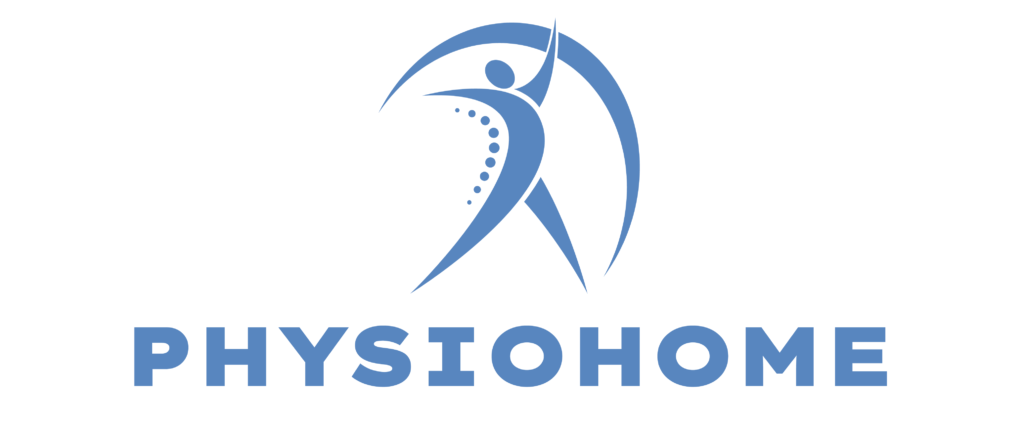In a world that often glorifies high-intensity workouts and extreme fitness regimes, it’s easy to overlook the importance of holistic wellness and injury prevention. That’s where physiotherapy steps in as a game-changer. Beyond just a tool for rehabilitation, physiotherapy can be the secret weapon to elevate your fitness routine and unlock your body’s full potential. In this blog, we’ll explore how integrating physiotherapy into your fitness regimen can lead to remarkable improvements in strength, flexibility, and overall performance. From addressing muscular imbalances to fine-tuning your technique, physiotherapy offers tailored solutions to suit your unique needs and goals. Whether you’re a seasoned athlete or a fitness enthusiast looking to take your workouts to the next level, understanding the benefits of physiotherapy is key to optimizing your physical health and achieving long-term success. Get ready to revolutionize your approach to fitness and unleash the athlete within with the power of physiotherapy.
Building Strength, One Session at a Time: The Role of Physiotherapy in Fitness
In the pursuit of strength and fitness, every session counts. Whether you’re a seasoned athlete or a beginner on your journey to wellness, maximizing each moment in your workout routine is essential. That’s where physiotherapy steps in, offering a unique approach to building strength that goes beyond traditional methods. In this article, we’ll explore how physiotherapy plays a crucial role in enhancing strength training, one session at a time.

Tailored Exercise Programs
One size does not fit all when it comes to strength training. Physiotherapy takes a personalized approach, crafting exercise programs tailored to your specific needs and goals. Whether you’re recovering from an injury, aiming to improve performance, or simply seeking to build muscle, physiotherapists design workouts that target your individual strengths and weaknesses, maximizing results with every rep.
Corrective Techniques
Building strength isn’t just about lifting heavier weights—it’s about doing so with proper form and technique. Physiotherapy incorporates corrective techniques to address any movement dysfunctions or compensations that may arise during your workouts. From alignment cues to muscle activation drills, these techniques ensure that you’re not just getting stronger but doing so in a way that minimizes the risk of injury.
Injury Prevention Strategies
Nothing derails progress like an injury. Physiotherapy places a strong emphasis on injury prevention, equipping you with strategies to safeguard against common workout-related injuries. By identifying potential risk factors and implementing preventative measures such as mobility exercises, dynamic warm-ups, and proper cooldowns, physiotherapists help you stay injury-free and on track towards your strength goals.
Rehabilitation Support
Injuries happen, but they don’t have to sideline you indefinitely. Physiotherapy plays a crucial role in the rehabilitation process, guiding you through tailored exercise programs and hands-on treatments to promote healing and restore function. Whether you’re recovering from a strained muscle or a more severe injury, physiotherapists provide the support and expertise you need to bounce back stronger than ever.
Functional Strength Training
Building strength isn’t just about how much weight you can lift—it’s about how well you can move in real-life situations. Physiotherapy emphasizes functional strength training, focusing on exercises that mimic the movements and demands of daily life. By improving your body’s ability to perform everyday tasks with ease and efficiency, functional strength training enhances not only your athletic performance but also your quality of life.
Achieving Balance: The Key to Optimal Fitness with Physiotherapy
Balance is the cornerstone of optimal fitness, encompassing not only physical equilibrium but also harmony between strength, flexibility, and mobility. In the pursuit of fitness goals, achieving balance is essential for preventing injuries, maximizing performance, and promoting overall well-being. Physiotherapy offers invaluable insights and techniques to help individuals attain and maintain this balance, ensuring a sustainable and effective fitness journey. In this article, we’ll delve into the importance of balance in fitness and how physiotherapy serves as a guiding force towards achieving it.
The Importance of Physical Balance
Physical balance is more than just the ability to stand on one leg—it’s about stability, coordination, and proprioception. Physiotherapy addresses these aspects of balance through targeted exercises and interventions aimed at improving core strength, enhancing joint stability, and refining movement patterns. By honing your physical balance, you’ll not only reduce the risk of falls and injuries but also enhance your overall athletic performance.
Balancing Strength and Flexibility
A well-rounded fitness routine encompasses both strength and flexibility training. Physiotherapy helps individuals strike the right balance between these two components, ensuring that muscles remain strong, supple, and resilient. Through a combination of strength-building exercises, dynamic stretches, and mobility drills, physiotherapists help you achieve optimal muscle balance, reducing the likelihood of overuse injuries and enhancing your range of motion.
Addressing Muscular Imbalances
Muscular imbalances occur when certain muscles are stronger or tighter than their counterparts, leading to dysfunction and increased injury risk. Physiotherapy specializes in identifying and correcting these imbalances through targeted exercises and manual techniques. By rebalancing muscle strength and length, physiotherapists restore harmony to the body, promoting better movement mechanics and reducing strain on joints and soft tissues.
Enhancing Stability and Proprioception
Stability and proprioception are vital components of balance, influencing how effectively you move and control your body in space. Physiotherapy interventions such as balance training, proprioceptive exercises, and stability drills help fine-tune these skills, enhancing your ability to navigate various physical activities with confidence and precision. By sharpening your proprioceptive awareness and improving joint stability, you’ll move more efficiently and effectively in your workouts and daily life.
Functional Movement Patterns
True balance in fitness extends beyond isolated exercises to encompass functional movement patterns that mimic real-life activities. Physiotherapy emphasizes functional training modalities that integrate strength, balance, and coordination into purposeful movements. By practicing movements that mirror the demands of your daily activities or sports, you’ll not only improve your physical balance but also enhance your overall functional capacity and performance.
Personalized Fitness: Tailoring Workouts with Physiotherapy
No two bodies are alike, and neither should be their fitness routines. Personalized fitness is the key to unlocking your full potential and achieving your goals safely and effectively. Physiotherapy offers a tailored approach to fitness, taking into account your unique strengths, weaknesses, and aspirations. In this article, we’ll explore how physiotherapy can help you customize your workouts for optimal results.
- Individual Assessment: Physiotherapy begins with a comprehensive assessment of your physical condition, including mobility, strength, and flexibility. This individualized approach allows physiotherapists to identify areas of improvement and design workouts tailored to your specific needs.
- Goal Setting: Whether you’re aiming to build strength, improve flexibility, or recover from an injury, physiotherapy helps you set realistic and achievable goals. By aligning your workouts with your objectives, you’ll stay motivated and focused on the path to success.
- Customized Exercise Programs: Gone are the days of generic workout plans. With physiotherapy, your exercise program is customized to target your unique challenges and goals. From strength training to corrective exercises, each workout is designed to maximize your progress and minimize the risk of injury.
- Injury Prevention Strategies: Physiotherapy doesn’t just focus on building fitness—it also prioritizes injury prevention. By addressing weaknesses, imbalances, and movement patterns, physiotherapists help you avoid common workout-related injuries, keeping you safe and on track towards your goals.
Conclusion
Integrating physiotherapy into your fitness routine can truly elevate your overall health and well-being. From injury prevention to rehabilitation, physiotherapy offers a holistic approach that targets both physical and mental aspects of fitness. By working closely with skilled physiotherapists at Physiohome, you can unlock your body’s full potential, enhance your performance, and achieve your fitness goals safely and effectively. Don’t let obstacles hold you back from reaching your peak fitness levels—embrace the transformative power of physiotherapy and embark on a journey towards a stronger, healthier you.
For more information on how Physiohome can help you optimize your fitness routine through personalized physiotherapy services, feel free to contact us at +971 52 730 9683 or visit our clinic in Ras Al Khaimah, United Arab Emirates. Our dedicated team is here to support you every step of the way on your path to better health and fitness.

